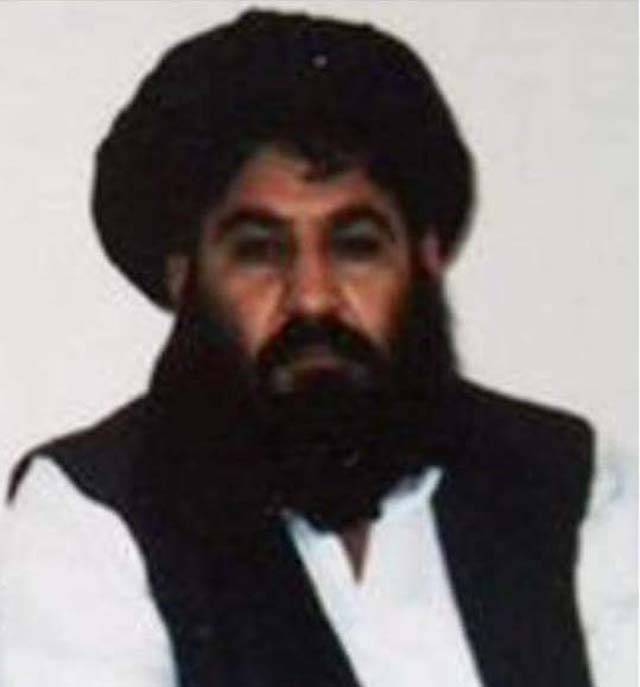The leadership of the Islamic Emirate and the family of Mullah Omar... announce that leader Mullah Omar died due to a sickness,” a Pakistani newspaper has cited a Taliban official. And on Thursday, Hafiz Saeed, leader of Pakistan’s religious group Jamaatud Dawa, front, led funeral prayers for Omar at a mosque in Lahore, Pakistan after the Taliban confirmed his death. Based on the report, the Taliban held meetings Wednesday night, after the reported death of Mullah Omar, and after consultation between members of the Shura Council appointed Mullah Akhtar Mansoor, a former aviation minister, as their new supreme leader.
The belated disclosure last week of Omar’s death has added to the legend of the ghostlike Taliban chief, a figure so elusive that it appears to have taken U.S. spy agencies two years to determine that one of their top targets after 9/11 was no longer alive.
U.S. intelligence officials now think that Omar probably died two years later, in 2013, and Afghan officials said last week that he succumbed while being treated for a serious illness in a Karachi hospital.
Milt Bearden, a former CIA operative in Pakistan and Afghanistan, is quoted to say that “it is beyond puzzling” that Omar’s death could go unconfirmed for so long, especially given the intelligence and surveillance capabilities of the United States.
But “it’s another case of why intelligence collection in that part of the world is so difficult,” Bearden said. “The truth is layered, and there are multiple agendas, none of which we ever really understand.”
In interviews, Afghan, American and European officials offered insight into why it took so long to determine that Mullah Omar was dead: He may have been one of the world’s most wanted men — he carried a $10 million American bounty on his head — but by 2014 few people outside Afghanistan seemed to want him enough to put much effort into finding out whether he was dead or alive.
The US State Department had offered a $10 million bounty on his head and described him as a tall male with shrapnel wound to the right eye.
Mullah Omar, along with several other Taliban leaders, was said to have fled to Quetta where they formed the “Quetta shura”. Reports had also claimed that Mullah Omar had fled to Pakistan’s Karachi city.
American officials said they had long ago come to believe that Mullah Omar’s role in the insurgency was primarily spiritual, and that he had little to no operational control over the Taliban. In an interview last year, a former American military commander went so far as to compare Mullah Omar to the medieval Spanish commander El Cid, whose corpse, according to legend, was suited with armor and propped up on a horse to bolster Spanish troops fighting the Moors.
It is believed that Mullah Omar’s role has been diminished in recent months. Therefore, the United States had said it will not target Mullah Omar and other Taliban leaders unless they posed a direct threat to the US, following the withdrawal of US forces in Afghanistan in January this year. However, the question is that who played his role in past months to keep the world in dark about his death?
Some believe that Mullah Akhtar Mansoor, Omar’s previous deputy, continued his task under Omar’s name to keep the militants’ morale high and deceive the world’s officials. The Taliban’s negotiators and high-ranking officials will frown upon the sudden disclosure of Omar’s death in this critical time, as progress was made in peace talk. This will trigger mistrust between Afghan-Taliban officials.
I have never been optimistic about the peace parley and insisted upon the Taliban’s insincerity, in my writings. Despite the Taliban’s deadly acts of terror, this also led to the death of former head of High Peace Council (HPC) Professor Burhanuddin Rabbani; Afghan officials pursued negotiation with great hope. As a result, Afghan President Muhammad Ashraf Ghani expressed his gratitude to Mullah Omar on Eid Day for a statement issued under Omar’s name saying that parley, not war, is a way towards peace. Now, the news of Omar’s death will be a real disappointment for knowing that Taliban have been playing their old game up to now.
Omar’s death marks a significant blow to the Taliban, which is threatened by the rise of the self-styled Islamic State group, the Middle East jihadist outfit that is making steady inroads in Afghanistan. With the news of his death, a larger number of the Taliban militants will pledge allegiance to the IS group. It is believed that Akhtar Mansoor does not have the charisma of Omar among the Taliban’s ideologues and therefore will not carry much weight – as Abu-Bakr al-Baghdadi does among his men.
Of late, Omar’s insignificant role was tangible – as many Afghan Taliban proclaimed their allegiance to IS leader. Finding themselves in conflict with the IS’s ideology and their aggressive approach, the Taliban’s high-ranking officials gave Afghan government the green light for peace talk. I believe that Mansoor is unable to fill the vacuum of Omar and to bridge the gap between the Taliban’s polarizations rather the rift will widens further.
After all, Mullah Omar’s vacant seat around the table of Afghan-Taliban negotiation regarding peace was beyond our officials’ imagination. To put it succinctly, the talk without Omar will not give the desired fruit, since Mansoor is unable to gain Taliban’s unanimous allegiance.

